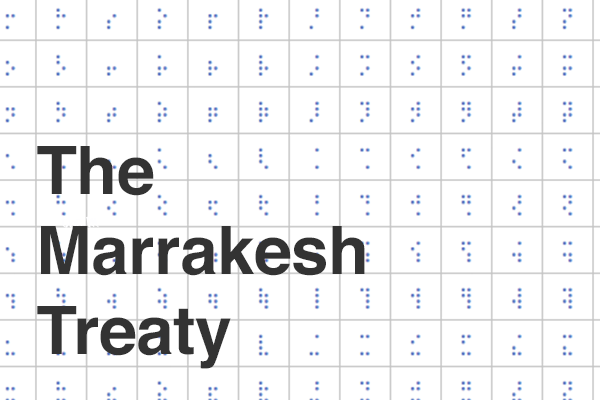The Marrakesh Treaty – What it is and Why It’s Important
 InclusiveDocs
InclusiveDocs
According to Wikipedia, the Marrakesh VIP Treaty is a treaty on copyright adopted in Marrakesh, Morocco, on 28 June 2013.
So, why is this important to digital publishers?
Well, per the Association of American Publishers, on October 10, 2018, legislation was enacted for the U.S. implementation of the Marrakesh Treaty.
After they worked for more than a decade with the U.S. government, WIPO (World Intellectual Property Organization) officials, Member States, and various advocacy groups, the “Marrakesh Treaty to Facilitate Access to Published Works for Persons who are Blind, Visually Impaired or Otherwise Print Disabled”, is now the law.
This legislation demonstrates that the United States is a nation firmly committed to everyone’s right to read and the protection, on a national and international level, of individuals against discrimination based on their disabilities.
The Treaty is intended to ensure that people all over the world who are blind, visually impaired or have other print disabilities can more easily obtain published literary works in accessible formats they can use.
It was first adopted in 2013 by the U.S. and other Member States of the United Nations-based WIPO. It entered into force in September 2016 following ratification or accession by 20 Member States, which was the minimum number of signatories required for the treaty to go into effect. As of October 15, 2018, 80 countries have signed the Treaty and 71 states have ratified it including the EU’s 28 member-states.
The treaty allows for copyright exceptions to facilitate the creation of accessible versions of books and other copyrighted works for visually impaired persons. It sets a norm for countries ratifying the treaty to have a domestic copyright exception covering these activities, also allowing for the import and export of such materials.
The European Union ratified the treaty for all 28 members on October 1, 2018. The provisions of the Treaty will go into effect across the EU (including in the United Kingdom) on January 1, 2019.
On June 28, 2018, the U.S. Senate approved it and the implementation of bill S. 2559 without apparent opposition; the House approved S.2559 via unanimous consent on September 25, 2018. The bill and the Treaty were signed into law by the President on October 9, 2018.
This is important to all publishers because accessibility is now more than ever, the law. The entire text of the treaty can be found here. Just two paragraphs taken from the Preamble indicate how serious this is:
“Recalling the principles of non-discrimination, equal opportunity, accessibility and full and effective participation and inclusion in society, proclaimed in the Universal Declaration of Human Rights and the United Nations Convention on the Rights of Persons with Disabilities,
Recognizing that, despite the differences in national copyright laws, the positive impact of new information and communication technologies on the lives of persons with visual impairments or with other print disabilities may be reinforced by an enhanced legal framework at the international level,”
Get cracking, people. Accessibility now.
Subscribe to my newsletter
Read articles from InclusiveDocs directly inside your inbox. Subscribe to the newsletter, and don't miss out.
Written by
